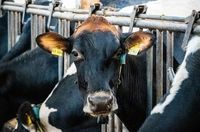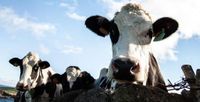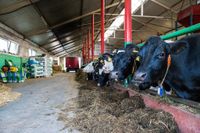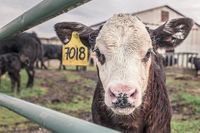As foot-and-mouth disease (FMD) continues to spread across Central Europe, authorities are on high alert. The latest outbreaks have been confirmed in Slovakia and Hungary, raising concerns about the potential impact on neighboring countries, including Poland.
The Śląski Provincial Veterinary Officer announced on March 27, 2025, that another outbreak of FMD was reported in the Slovak Republic. This viral disease is highly contagious among cloven-hoofed animals such as cattle, pigs, sheep, and goats. The virus can be transmitted through direct contact between animals, as well as through contaminated meat, milk, and animal feed. It can also spread via humans, equipment, and even clothing.
Symptoms of the disease include fever, apathy, loss of appetite, and a sharp decrease in milk production. Infected animals may develop blisters on their tongues and mouths, leading to painful ulcerations. Calves and piglets fed milk from infected mothers often show signs of diarrhea and exhaustion, and the disease can lead to high mortality rates among both young and adult animals.
In recent days, additional outbreaks have been confirmed, including the second in Hungary and the fourth in Slovakia. The second outbreak in Hungary was detected on a dairy farm housing approximately 3,000 cattle, located in the municipality of Level, near the borders of Austria, the Czech Republic, and Slovakia. Meanwhile, Slovakia's fourth outbreak occurred on a farm with 279 cattle, which was already in a previously restricted area.
As of March 27, 2025, FMD has not been detected in Poland, but the risk is significant due to animal transports from Hungary and Slovakia. The Veterinary Inspection is conducting intensive checks on farms that may have received animals from Slovakia, particularly those that imported livestock between February 20 and March 20, 2025. The PIW — PIB laboratory is operating 24 hours a day to monitor the situation closely.
Chief Veterinary Officer Krzysztof Jażdżewski has emphasized the importance of vigilance among breeders. He clarified that while tissue samples taken for testing may indicate a suspicion of FMD, this does not confirm the presence of the disease. In the past month alone, Poland has received 412 shipments of animals susceptible to FMD from Slovakia, with three farms receiving pigs and over 400 transports of cattle often going to collection points before reaching individual farms.
"We must check all transports thoroughly, but this should not be viewed as an extraordinary procedure; these are standard actions to protect Polish breeders of pigs, cattle, and sheep," Jażdżewski noted. He also highlighted that the only province confirmed to be free from such transports is Pomerania.
Moreover, the Chief Veterinary Officer warned against purchasing animals at bargain prices, as they may pose health risks. He advised against introducing newly bought animals into existing herds without proper quarantine measures, stressing that such practices could lead to the introduction of FMD or other diseases.
The situation has prompted a strong response from neighboring countries. The Czech Republic has implemented a ban on importing animals and animal products from both Hungary and Slovakia. On March 27, 2025, Prague announced new protocols for border farms, including the use of disinfectant mats at entry points.
As the disease poses a significant threat to livestock, the Czech Minister of Agriculture reported a probable source of FMD in northwestern Hungary, which could extend the risk area to parts of Austria. Consequently, the annual livestock exhibition has been postponed to September, and zoos have been closed as a precautionary measure.
Foot-and-mouth disease has not been reported in Slovakia since 1971, making the current outbreaks particularly alarming. The disease is transmitted through saliva, urine, feces, and milk, and the only effective control measure is the culling of entire herds, which can lead to devastating economic losses for farmers.
In Poland, the last case of FMD was recorded in 1971, and the country has remained free of the disease for decades. However, the recent outbreaks in neighboring countries have raised concerns about the potential for the virus to cross borders. The Polish government has taken steps to reinforce border controls and ensure that any incoming livestock is thoroughly checked.
In light of the current situation, the Veterinary Inspection has reiterated the importance of reporting any suspected cases of FMD immediately. Farmers are urged to limit access to their farms and to avoid transporting animals or animal products from infected areas.
As the outbreak unfolds, the focus remains on preventing the spread of the disease and protecting the health of livestock across the region. Authorities continue to monitor the situation closely, and farmers are encouraged to remain vigilant in their practices to safeguard their herds.









